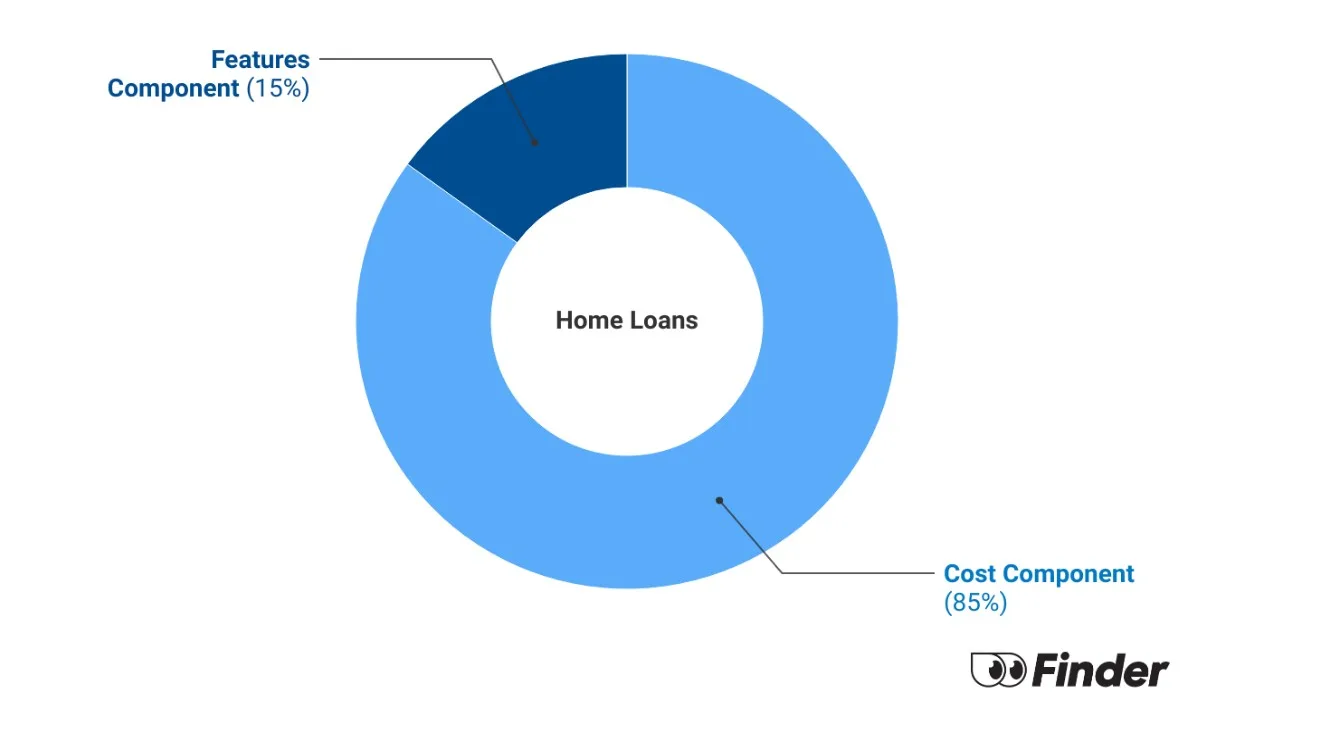Compare other products
We currently don't have that product, but here are others to consider:
How we picked theseKey takeaways
- Use the table to compare 4 year fixed rate home loans from various lenders.
- With 4-year fixed rate home loans your repayments stay exactly the same for the first 4 years of the loan.
- 4-year fixed rates have higher rates than shorter fixed rate loans and are much higher than variable rate loans.
Why should I fix my home loan rate for 4 years?
Most Australians go for variable rate home loans. Borrowers who do fix, typically do so for 1-3 years. 4 year fixed rate home loans tend to have higher rates than variable rate loans and other fixed rate loans.
This would make your home loan more expensive and you wouldn't be able to take advantage of any rate cuts that might take place over that period. If you want to refinance the home loan or end it during the 4-year fixed period, you'll pay a hefty fixed rate break cost.
But there are some reasons people choose these loans:
- Repayment certainty. Your repayments won't change for 4 years. This means you know exactly how much to budget for your mortgage repayments for quite a long time. For some people, that beats the savings that come with a lower interest rate.
- Forget about rate rises. Borrowers on variable rate home loans know that their home loan rate could rise at any time. With fixed rate loans, you don't have to worry. For some borrowers, this peace of mind is worth getting a higher rate.
- Fixing for the long term. Fixing your rate for 4 years appeals to a borrower who wants to "set and forget" their rate.
Why are 4-year fixed rate loans less popular?
There are a couple of downsides to fixing for a long time that put off many borrowers:
- Higher rates. Rates for a 4-year home loan tend to be higher than most fixed rate loans. This makes your monthly repayments more expensive.
- Higher break costs. If you exit a home loan early or need to refinance suddenly, you have to pay a break fee if you have a fixed rate loan. The fixed rate break cost is determined partly by your loan amount, your rate and how long is left on your fixed period. The longer you have left, the higher the cost will be.

"It's really a matter of personal choice as to whether you opt for a 4 year fixed rate or not. It's impossible to know how 4 years might play out, so you'll never know if you could miss out on better rates over that time. Instead of trying to time the market you should decide based on whether locking in your repayments makes you feel more secure.
In the right environment it could work to your advantage. Borrowers who took out a 4 year fixed rate in 2021 when rates were at their lowest would have missed out on all the rate rises we saw in 2022 and 2023."
How do 4-year fixed rate home loans work?
A 4-year fixed rate home loan is like any other home loan – you borrow money and repay it over the loan term. But for the first 4 years of the loan, your repayments will stay the same every month.
The revert rate
After the fixed period, your loan reverts to a variable rate loan. Variable interest rate home loans can change at any time as lenders respond to changes in money markets and the overall economy.
When your fixed rate ends, it's a good time to compare home loans and see if you can get a better deal on a new variable rate loan. You could also get a new fixed rate loan instead.
Other fixed rate periods
Most lenders offer fixed rates between 1 and 5 years. Learn more about different fixed periods with these guides:
Are 4-year fixed rates higher than variable rates?
Typically, interest rates for 4 year fixed rate loans are higher than variable rates. But at the moment, as lenders wait for interest rates to start falling, lenders have reduced their fixed rates.
The average owner occupier 4 year fixed rate for January 2026 is 6.02%.
The average owner occupier variable rate for January 2026 is 6.41%.
Is it too late to lock in a low 4-year fixed rate?
You can see the current difference between fixed and variable rates on our average interest rates guide.
Although experts had been expecting further rate cuts in 2026, the latest data suggests that's now off the table. This means we're starting to see fixed rates increase.
How do I compare 4-year fixed rate home loans?
To make sure you get a great deal on a 4-year fixed rate loan, pay attention to the rate, the fees and the loan's features.
Focus on the following:

Get a lower rate
Even if fixed rates are higher than variable rates, it's important to compare multiple 4-year fixed rates to find a good deal. Why pay more interest for no reason?

Get a loan with low fees
Some home loans have lots of fees and others have none. A lower interest rate is more important, but the fewer the fees, the cheaper the loan will be.

Loan features
Fixed rate loans have fewer features than variable rate loans, like 100% offset accounts or the ability to make extra repayments. But some do, so it's worth comparing.
More questions about fixing your home loan rate for 4 years
What is Finder Score?
The Finder Score crunches 7,000 home loans across 120+ lenders. It takes into account the product's interest rate, fees and features, as well as the type of loan eg investor, variable, fixed rate - this gives you a simple score out of 10.
To provide a Score, we compare like-for-like loans. So if you're comparing the best home loans for cashback, you can see how each home loan stacks up against other home loans with the same borrower type, rate type and repayment type. We also take into consideration the amount of cashback offered when calculating the Score so you can tell if it's really worth it.
Sources
Ask a question
More guides on Finder
-
10-year fixed mortgage rates
While getting a 10-year fixed rate home loan might be a good idea if you want to keep your repayments the same over the next decade, you will pay more if interest rates drop.
-
Fixed rate interest in advance home loans
Save on interest rates and enjoy tax savings with fixed rate interest in advance home loans.
-
Why 30 year fixed mortgage rates don’t exist in Australia
Thirty year fixed rate home loans don't exist in Australia, unlike in the US where they're very common.
-
5-year fixed rate home loan rates in Australia
A competitive 5-year fixed rate home loan will see your repayments stay the same for a large chunk of your home loan.
-
Compare 3-year fixed rate home loans
A fixed-rate home loan can offer you stability and peace of mind. Find out if a three-year fixed rate home loan is right for you.
-
2-year fixed rate home loans
Enjoy the stability of knowing your repayments won’t change for 2 years.
-
Compare 1-year fixed rate home loans
Find a competitive 1-year fixed interest rate home loan. Compare your options and apply today.
-
Fixed home loan break cost – how much does it cost to end a fixed loan?
Early repayment adjustment, also known as a break fee, is charged when you end a fixed loan contract. Learn how banks calculate these fees.

